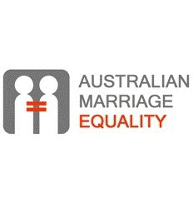"For Kids' Sake" report "strengthens" case for marriage equality
6 Sep 2011

(Via Australian Marriage Equality)
Marriage equality advocates say that a report released today claiming children benefit from having married parents strengthens the case for same-sex marriage.
The report, "For Kids' Sake", by Professor Patrick Parkinson from Sydney University Law School was commissioned by the Australian Christian Lobby and launched in Canberra today. It found the wellbeing of many children had deteriorated in the past 10 to 15 years.
Australian Marriage Equality National Convener, Alex Greenwich, said it is cruel and hypocritical for those who say they uphold marriage as an institution to deny the benefits of marriage to same-sex couples raising children.
"The fact that marriage can provide greater security and stability for children is all the more reason to allow same-sex couples to marry", Mr Greenwich said.
"Those who truly believe in the benefits marriage brings to couples and children should be demanding these benefits are extended to same-sex couples and their children."
"Studies confirm that many Australian children are being raised by same-sex couples and that these children have the same developmental outcomes as other children, so it's time to take the extra step of allowing these children the benefits of married parents."
Mr Greenwich said the report's claims that the presence of new partners not biologically related to the children increases risk for children misses that point that most children raised by same-sex couples know their non-biological parent as a parent from birth and for their entire lives.
"What all the research shows is that children need consistency and continuity - something that marriage can enhance - and that the gender of their parents is irrelevant to this."
Mr Greenwich went on to say that where same-sex marriages have been allowed overseas, the rate of heterosexual marriages has increased, especially among young heterosexual people.
"The experience overseas is that removing discrimination from marriage makes the institution more relevant to a society increasingly accepting of same-sex unions and re-inforces marriage's core values of love and commitment", Mr Greenwich said.
Studies estimate that up to 15-25% of same-sex couples are currently raising children. A report by the University of Queensland last year found that over 80% of same-sex couples with children under 5 years would like to marry. Both the Australian and American Psychological Associations have analysed the wealth of data on gay parenting and concluded children raised by same-sex couples have the same levels of emotional, social, intellectual and sexual adjustment as their peers.
Key studies showing the equal parenting outcomes for same-sex couples and their children are included below:
"Research suggests that the children of gay and lesbian parents have similar psychological adjustment to children growing up in more traditional family structures."
Ray, V., and Gregory, R., 'School experiences of the children of lesbian and gay parents', Australian Institute of Family Studies, Family Matters No 59, Winter 2001. URL: http://www.aifs.gov.au/institute/pubs/fm2001/fm59/vr.pdf
"... (P)arenting practices and children's outcomes in families parented by lesbian and gay parents are likely to be at least as favourable as those in families of heterosexual parents, despite the reality that considerable legal discrimination and inequity remain significant challenges for these families."
Short, E., D Riggs, A. Perlesz, R. Brown and G. Kane, Lesbian, Gay, Bisexual and Transgender (LGBT) Parented Families: a literature review prepared for The Australian Psychological Society. Melbourne, 2007. URL: http://www.psychology.org.au/Assets/Files/LGBT-Families-Lit-Review.pdf
"There is no scientific basis for concluding that gay and lesbian parents are any less fit or capable than heterosexual parents, or that their children are any less psychologically healthy and well adjusted ... The children of same-sex couples will benefit if their parents are allowed to marry."
'Brief of the American Psychological Association, The California Psychological Association, the American Psychiatric Association, and the American Association for Marriage and Family Therapy as amici curiae in support of plaintiff-appellees - Appeal from United States District Court for the Northern District of California Civil Case No. 09-CV-2292 VRW (Honorable Vaughn R. Walker)'. URL: http://www.ca9.uscourts.gov/datastore/general/2010/10/27/amicus29.pdf
"Lesbian mothers are just as child-centred as heterosexual mothers, and their children do not exhibit higher rates of psychological disorders."
Cooper D, 'For richer for poorer, in sickness and in health: Should Australia embrace same-sex marriage?', Australian Journal of Family Law, 19, 2005, p 166.
"Children with homosexual parents do not differ in terms of sex role identification, happiness, social adjustment, sexual orientation, life satisfaction, and moral and cognitive development."
Tauber E and Moloney L, 'How is the issue of lesbian and gay parenting addressed in family reports', Australian Journal of Family Law, 16(3) December 2002, p 187.
"The social science research that is routinely cited [against same-sex parenting] does not actually speak to the questions of whether or not children need both a mother and a father at home. Instead proponents generally cite research that compares [heterosexual two-parent] families with single parents, thus conflating the number with the gender of parents."
Biblarz, T.J. & Stacey, J. (2010). 'How does the gender of parents matter?', Journal of Marriage and Family 72 (February 2010): 3-22. URL: http://www.lgbt.org.ar/blog/Matrimonio/archivos/biblarz_2010.pdf



 Marriage Equality is a proud member of NELFA
Marriage Equality is a proud member of NELFA